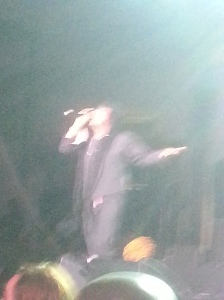The Federal Government and many State counterparts know how to spin a good yarn on entrepreneurship being the solution to Nigeria’s unemployment pandemic. There has been no better evidence of the country’s stark reality in the employment stakes than when the government itself shambolically attempted to test over 500,000 job applicants to fill only 4,000 vacancies (less than 1%), resulting in stampedes and deaths.
So, yes, unemployment is a problem. And you would think that governments serious about stimulating private sector job creation would be similarly serious about creating an environment conducive to this. Sadly, starting and running a business in Nigeria remain extremely tough and most of the obstacles to giving it the best shot come from the government and its various agencies.
Granted, it isn’t the fault of the government (well, not directly, anyway) that very little credit is available and so office space, electricity generators, equipment, supplies, etc. all have to be paid for in full prior to commencing business. However, most business people find that once they’re set up, they’re then at the mercy of all sorts of “officials” from State agencies and the local government, demanding all sorts of levies for sundry permits, depending on the nature of business being carried on.
The problem isn’t the permits in and of themselves, as most entrepreneurs I’ve been privileged to advise do want to do business legitimately and in a structured manner. The problem is in the way that these agencies ambush businesspeople. What’s worse, I doubt that there are any consultants who can give you the full list of permits, licenses or approvals required for a business – this advice will come with a caveat. So, how can people starved for cash properly plan their expenditure?
My proposed solution is for the government to simplify this process. I realise this is antithetical to current practices of making approvals as tortuous as possible (in order to extract as much “extra” from the public as possible) but we surely cannot continue this way. My proposal for simplification is similar to the Federal Government’s One Stop Investment Centre (which hasn’t really worked out, by the way, but a noble idea).
The idea behind OSIC was to create one office where investors could go to for all the permits required to carry on business in Nigeria. Great idea, but key agencies like customs and immigrations have remained very tribal (who would blame them, given how much, for example, expatriate quotas cost) and “one stop” hasn’t really been one stop.
A state OSIC would be a great idea too though, especially if the State Government secured (or coerced) the buy-in of Local Governments too. One place for every single permit your business needs, with a pact from the government that no one would be harassed over any permit or levy not issued or collected at its OSIC. In addition to that, serious states (I’m talking to you, Ogun State) have to dismantle road blocks where local governments demand that motorists buy radio licences to be able to drive through the local government. It isn’t only illegal, it is patently stupid. Same as with requiring trucks and articulated vehicles to obtain permits for each local government they intend to drive through. This currently affects only loggers and the like but when e-commerce begins to require larger delivery vehicles to maximise efficiency, it simply won’t be workable.
In the World Bank’s annual “Doing Business” report for 2014, Nigeria ranks 122 out of 189 in ease of doing business. In 2013, our rank was 114, so it appears doing business has become tougher over the past year. You can see the report for yourselves here (and here for the overall rankings). It is no coincidence that the countries where doing business is easiest are amongst the world’s most prosperous.
We have only 6 years to go until 2020, when the government says it plans to break into the elite group of the world’s Top 20 economies.










